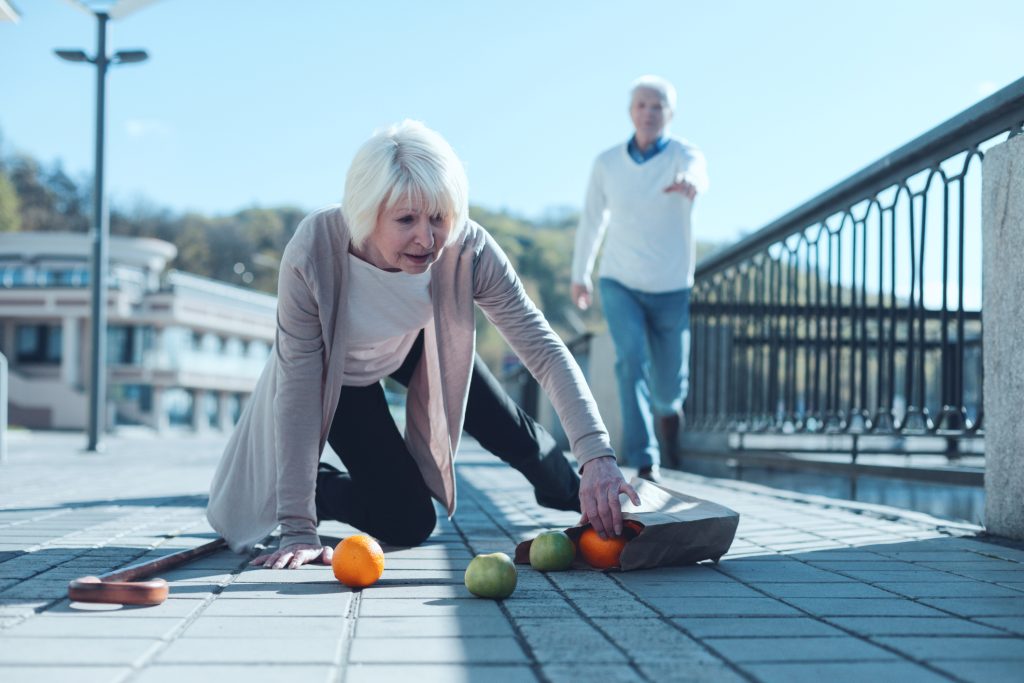
Simple and Practical Tips to Prevent Falls Among Seniors
OCTOBER 17TH 2021 Sunland Home Care
Falls among seniors are one of the largest contributing factors to hospitalizations and injuries. Often, these falls can be circumvented by taking precautionary measures which will be shared in this article.
The Centers for Disease Control (“CDC”) indicated that one in five falling accidents results in broken bones or a serious head injury. For seniors, that number is one in four. Waiting to take preventative action can cause unnecessary pain and suffering which can be avoided. Loss of mobility is natural as we age. However, there are preventive measures that can be taken to reduce the risk of falls.
Why Do Seniors Fall?
There are many factors which can contribute to the likelihood of having a fall. It is critical to identify your loved one’s personal challenges that may increase their risk of falling – poor balance, poor eyesight, or tripping hazards at home. The specific reasons will help you take the necessary actions to prevent and mitigate such risks. You will be able to recognize potentially hazardous situations and help avoid them.
Once you have determined the potential causes, you can begin to help them. You don’t want to take the wrong corrective actions, such as working on balance exercises if it is failing eyesight that is causing him or her to fall. In the following, we will cover some of the most common causes of falls for seniors.
Balance
Good balance helps you walk without stumbling, being able to climb stairs, and rise from a chair with ease. It is not uncommon for seniors to suffer from balance problems. A common reason can be disturbances of the inner ear, resulting in dizziness. Some balance problems can be helped by decreasing salt intake and lowering blood pressure, having a healthy weight, and maintaining an exercise program. Weak bones are another reason seniors worry about losing their balance. If in doubt, a checkup with your doctor may help pinpoint the cause.
Medication
It is critical to know what medications a senior is taking. Some of them can have an adverse effect, so do speak with your doctor. It is up to the family members to be proactive and ask those questions. During short visits, doctors may not check sufficiently into the side effects of certain medications.
Poor Vision
Nerve fibers from the eyes interact with the balance portion of the inner ear. So, vision has an important effect on balance. If these nerves are damaged, it can cause problems with balance and movement in general. Currently, 69 million people above the age of 40 experience these problems, called vestibular disorder. An optometrist knowledgeable about therapeutic vision can perform a full eye exam to ensure that the patient is using both eyes together, has an adequate sense of depth, and is able to follow a specific target. Peripheral vision should be checked at the same time. An optometrist may even recommend specific visual exercises, which can be very helpful.
Chronic Disorders
The majority – approximately 80 percent – of seniors have conditions such as arthritis, diabetes, and/or residual effects from a stroke. These factors can result in diminished function, dependence on medications, and can further contribute to a senior’s risk of falling.
How to Prevent Falls
1. Sometimes, one just needs to ask an older adult if he or she is worried about falling. It can be that simple. The right questions can help a family member take the needed steps in fall prevention.
2. Discuss the senior’s general well-being and overall health. Identify potentially balance altering medications, and how they are managing daily activities such as showering, shopping, cleaning, etc. If doing normal tasks is becoming difficult, it could be a sign of a problem.
3. Ensure that your loved one has regular eye examinations.
4. Pay attention to changes in habits. Is he or she grasping onto furniture or walls when walking? That may be indicative of a fear of falling.
5. Check your loved one’s home for trip and fall hazards. Are certain parts of the house too dark and require better lighting? Do all stairs have sturdy railings? Loose throw rugs can be a slipping hazard. Add grab bars to the senior’s tub and shower and by the toilet. If you sense your senior is at serious fall risk, install a shower chair.
Conclusion
Seniors who fear falling will likely avoid certain activities, even healthy ones such as going for a walk and other exercise. They may become socially isolated as they are afraid to go out. Fear of falling can severely restrict a senior’s quality of life.
Paying attention and taking care of your senior’s overall health will greatly lower the risks of falling. Ensure that one is as active as possible, as this will strengthen muscles and improve balance. Get new eyeglasses, if necessary. Discuss the effects of all medications with your loved one’s doctor.
As the natural course of aging may not be directly something we can control, how we manage the effects of aging is within our control.
If you are concerned about the safety of your loved one, please give us a call to speak with an advisor at (858) 774-8528.
We have solutions for your family member whether they choose to stay in their own home or would like to relocate to an assisted living community. We are always here for you!
Give us a call today at (858)774-8528.
